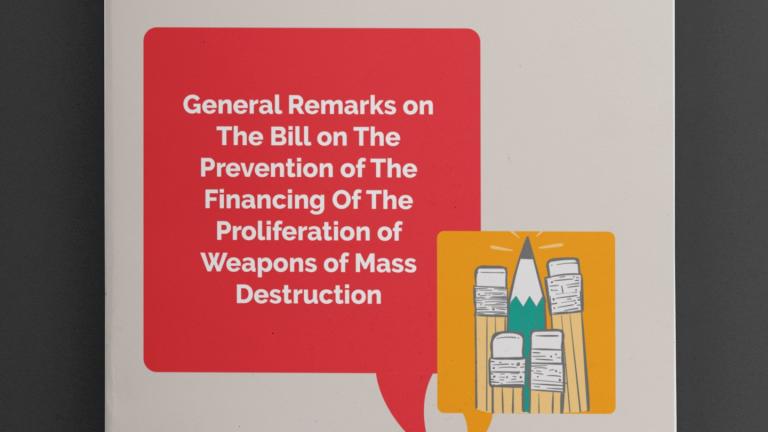
In the first part of the report, which consists of three parts, a general evaluation is made about the impact of the COVID-19 pandemic and the rising populist wave, especially in Europe and Turkey, on non-governmental organizations. While the second part of the report focuses on the legal and administrative processes that affect the freedom of association in Turkey, the conclusion part includes a series of recommendations for solving the problems experienced in practice.
Civil society actors face a 'pushback' around the world
In the first chapter, which deals with the developments in the field of civil society in the world and Turkey, it is emphasized that the negative impact of rising populism on non-governmental organizations continues, and it is underlined that the COVID-19 pandemic has deepened the situation.
During the pandemic period, the Ministry of Interior had banned the activities and general assemblies of non-governmental organizations that "bring people together". In the report, it was stated that in this process, companies were provided with the opportunity to hold general assembly meetings in the electronic environment, while a similar opportunity was not provided for associations.
Turkey ranks first in the list of countries where the ECHR has given a violation decision
The European Court of Human Rights (ECHR) found Turkey at fault for violating at least one article of the European Convention on Human Rights (ECHR) in 3309 cases as of 2020. The ECHR ruled that Turkey violated Article 10 of the ECHR on freedom of expression and thought in 35 cases in 2019 and 31 cases in 2020. As such, Turkey ranks first in the list of member states of the Council of Europe found at fault for violating Article 10 of the ECHR, which protects freedom of expression, both in 2019 and 2020.
As of 2020, the ECHR found the Republic of Turkey at fault in 108 cases because it violated Article 11 of the ECHR, which protects the right to organize and peaceful assembly and demonstration. Again, Turkey ranks first in the list of member states of the Council of Europe that violate Article 11 of the ECHR.
The legislation gives the public administration very wide discretionary power
In the second part, in which the obligations regarding the Freedom of Association in Turkey and the problems experienced in implementation together with the legislation were discussed, it was emphasized that the legislation on the freedom of association in Turkey gives wide discretion to the public administration.
With an article added to the Law on Associations with the "Law on the Prevention of the Financing of Weapons of Mass Destruction", it was stated that the authority of the Ministry of Interior to temporarily suspend associations from their activities and to appoint an officer (trustee) instead of him by dismissing the management bodies of the association makes the administration open to arbitrary practices.
The report said:
"There is no information shared with the public about how many closure cases were filed against associations in the 2019-20 period and their reasons. On the other hand, the information that the Ministry of Interior sent a letter to many rights organizations to conduct audits after the amendment made with the Law No. 7262 spread over CSO networks."
In the conclusion part of the report, it was stated that the secondary legislation produced based on the Law on Associations was extremely disorganized, far from intelligible, and restricted the free use of the freedom of association. To solve the problem, it was recommended to review the Law on Associations and related secondary regulations with an approach that will allow the meaningful participation of participants and CSOs and to make a new regulation in line with international standards.
It is also among the recommendations that the sanctions that arise in case of failure to fulfill the obligations regarding notifications, declarations, and documents that CSOs are obliged to keep, should be proportionate and that corrective interim solutions should be introduced instead of immediately penalizing CSOs.
The inclusion of CSOs in the participation processes is at the initiative of the administration
While it is stated in the report that it is extremely insufficient for CSOs to participate in the legal regulations related to them and to give their opinions, and there is no legal regulation expressing the participation of citizens in the decision-making processes about them, either openly or clearly, the inclusion of CSOs in the processes is left entirely to the initiative of the administration. transferred.
In the conclusion part, it was emphasized that a framework law that obliges the participation of CSOs in the regulations and policy-making processes regarding this issue is necessary, and it was recommended that the law should be prepared in accordance with the participation and expression of opinions of CSOs from the draft stage.
Transparent monitoring of the supports transferred to CSOs by the administration is not possible
In the report, it was stated that there was no public information about the financial and in-kind resources transferred to non-governmental organizations by public institutions, to which organizations, with what criteria and under what conditions, and that no results were obtained from the applications for information on this subject.
In the report, it was emphasized that there was no transparent monitoring regarding the use of public funds for CSOs, that there was difficulty in accessing information about which CSOs benefited from the support provided to CSOs from public resources and for which activities these resources were used.



